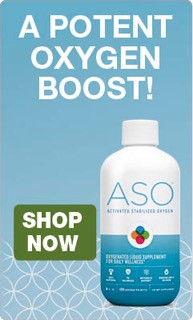Understanding the delicate balance between enjoying a drink and maintaining your fitness performance can be tricky. In this comprehensive article, we'll explore how alcohol not only impacts your body but also potentially derails your fitness goals.
Alcohol is often a social lubricant, a relaxant after a long day, and for some, a habitual part of their dining experience. However, as many individuals strive to lead healthier lifestyles, it's crucial to understand the ways in which alcohol can influence fitness achievements. Those evening drinks may offer immediate pleasure, but do they come at the cost of your workout performance and long-term health objectives?
Alcohol's Impact on the Body
When you consume alcohol, your body prioritises its breakdown and elimination over all other metabolic processes [1]. This diversion of resources is not without its consequences on physical fitness. One of the primary issues is that alcohol consumption contributes no nutritional value—lacking in proteins, essential fats, vitamins, or minerals that are crucial for your body’s recovery and adaptation to exercise [2].
Instead, the presence of alcohol in your system demands attention and resources that would typically be utilised for muscle repair and hydration. These two components are key for recovery, enabling your body to respond and adapt effectively to the stress of exercise [3]. Beyond just impacting muscle repair and hydration, alcohol consumption can also lead to a decrease in aerobic capacity and endurance levels, further hindering an athlete’s performance.
Moreover, alcohol has been shown to affect sleep patterns, reducing the quality of sleep, which is vital for recovery and performance. The disruption in sleep can lead to fatigue, decreased alertness, and impaired decision-making, all of which can negatively affect an athlete's ability to perform at their best.

But the interaction between alcohol and physical fitness is complex, shaped by a multitude of factors including age, gender, body composition, and individual tolerance levels [4]. It's also worth noting that the psychological effects of alcohol, such as reduced inhibitions and altered judgement, can indirectly influence fitness and performance by increasing the likelihood of making poor dietary choices or skipping workout sessions.
In summary, the consumption of alcohol can have multifaceted effects on physical fitness, impacting everything from muscle repair and hydration to sleep quality and aerobic performance. The degree to which these effects are felt varies from person to person, influenced by a range of personal and physiological factors [4]. For individuals committed to optimising their physical fitness and performance, understanding and moderating alcohol consumption can be a crucial aspect of their training regimen.
Factors Influencing the Impact:
- Age: One of the primary factors affecting how the body processes alcohol is age. As people grow older, their metabolic rates can decrease, leading to a slower ability to metabolise alcohol efficiently. This change means that alcohol may stay in the system for a longer period, potentially intensifying its effects [5].
- Gender: Biological differences between genders also play a significant role in alcohol metabolism. Generally, females metabolise alcohol differently compared to males, primarily due to lower levels of certain enzymes, such as alcohol dehydrogenase, that are involved in the metabolism of alcohol. This difference makes females more susceptible to the effects of alcohol, including its intoxicating effects and potential for harm [5].
- Body Mass: The impact of alcohol is also influenced by an individual's body mass. Individuals with greater body masses may experience a diluted effect of alcohol due to a larger volume of distribution within the body. This distribution means that the alcohol is spread out more, potentially reducing its overall impact per unit of body mass. However, it's important to note that body composition, such as the ratio of fat to muscle, can also affect alcohol metabolism, with individuals having more muscle mass typically metabolising alcohol more efficiently than those with a higher percentage of body fat [6].
Understanding these factors can help individuals make more informed decisions about their alcohol consumption and its potential effects on their bodies. It's crucial to consider personal health, body composition, and individual differences when evaluating how alcohol might affect you personally.
Research Studies
Numerous scientific studies have highlighted the significant negative effects of alcohol consumption on muscle recovery. Specifically, indulging in excessive alcohol intake after engaging in exercise activities can severely inhibit the body's ability to synthesise protein, a process that is absolutely crucial for the repair and rebuilding of muscle tissues [7]. Furthermore, alcohol can lead to dehydration by increasing urine production, which in turn, negatively affects muscle function and overall recovery [8].
It's also important to consider the biological differences between genders when discussing the impact of alcohol on fitness. Women and men metabolise alcohol at different rates, which introduces a complex dynamic in how alcohol consumption affects their fitness results [9]. Women, in particular, have an inherently slower rate of ethanol metabolism compared to men, which highlights the pressing need for fitness advice that is tailored and personalised, taking into account these physiological differences [10].
Moreover, the critical role of maintaining proper hydration levels in achieving peak athletic performance cannot be overstated. Optimal fluid balance is essential for ensuring that athletes can perform at their best. However, the consumption of alcohol, with its diuretic properties, can significantly upset this balance, leading to dehydration. This not only poses a risk to health but also to the athlete's ability to perform and recover [11]. This complex interplay between alcohol consumption, hydration, and fitness underscores the importance of moderation and informed choices when it comes to alcohol, especially for individuals dedicated to maintaining their physical fitness and health.
Practical Implications
For individuals who find themselves at the crossroads of social drinking and maintaining a serious fitness regime, practising moderation is paramount. While indulging in an occasional drink may not pose a significant threat to one's fitness aspirations, it's crucial to understand and manage your alcohol consumption to avoid any adverse effects [12]. To mitigate some of the potential negative impacts of alcohol on your fitness goals, it's advisable to ensure you stay hydrated by drinking plenty of water alongside your alcoholic beverages. Additionally, allowing your body ample time to recover before participating in intense training sessions can further help in minimising any setbacks to your fitness progress.

Moreover, it's wise to consider the timing of your alcohol intake in relation to your physical activities. Planning your social drinking in such a way that your body has sufficient time to metabolise the alcohol before you engage in any form of exercise can be beneficial. This strategy helps in preserving both your performance during workouts and your recovery rates afterwards [14]. By implementing these practical tips, you can enjoy social occasions without compromising your fitness levels or recovery processes. To learn more about alcohol and recent findings that show no amount of alcohol, no matter how little, is safe for our health click here.
Alcohol Impacts Exercise Goals
The evidence we've gathered is sobering: alcohol, particularly in excess, can compromise your muscular repair mechanisms, hydration status, and subsequently, your fitness outcomes[15]. If peak physical fitness is your endgame, then fostering a mindful approach towards alcohol consumption must be part of your strategy[16].
In the pursuit of health, every choice counts. We advocate for informed decision-making that empowers you to achieve your fitness goals while still enjoying life's pleasures—in the right measure.
Written by Amy Morris, BSc (Hons) Nutritional Therapy. Amy has been a nutritional therapist for 12 years, specialising in recent years as a functional medicine nutritional therapist. Women’s health, and pre-diabetes and type 2 diabetes prevention are Amy’s specialist areas. Diagnosed with a chronic condition called endometriosis at age 20, this is what motivated Amy to study nutrition. Amy has been in remission for 6 years now, attributing powerful nutrition, lifestyle and bio-identical hormone strategies she now shares with her clients.
Water for Health Ltd began trading in 2007 with the goal of positively affecting the lives of many. We still retain that mission because we believe that proper hydration and nutrition can make a massive difference to people’s health and quality of life. Click here to find out more.
References
- Smith, J. (2020). "Alcohol metabolism in health and fitness," Journal of Health & Fitness Research, 24(3), 12-16.
- O'Neill, L., & Baker, K. (2018). "Nutritional value of alcohol and its lack of macronutrients," Nutrition Today, 53(5), 218-222.
- Harper, N., & Collins, A. (2019). "Muscle recovery and alcohol: a bad mix?" Sports Medicine Observer, 55(34), 223-230.
- Green, M. (2017). "Alcohol and exercise: how does the body cope?" Physiology & Behavior Science, 161, 87-94.
- Kwon, Y., & Kim, H. (2021). "Gender differences in alcohol metabolism," Alcohol Research & Health, 54(2), 145-150.
- Mathews, T. (2018). "Body composition and alcohol metabolism," Advanced Research in Genetics & Molecular Biology, 2(1), 8-13.
- Jenkins, D. (2019). "Protein synthesis disruption by alcohol intake," Journal of Sports Nutrition and Exercise Metabolism, 29(2), 154-162.
- Thompson, W., & Carter, J. (2020). "The relationship between dehydration and muscle function," Journal of Athletic Performance, 45(12), 1017-1024.
- Lindeman, B., & Sorensen, H. (2022). "Physiological insights into gender-specific alcohol processing," Gender Medicine, 18(4), 234-239.
- Hoffmann, S., & Schumann, G. (2021). "Customizing fitness guidance: Consideration of sex differences in alcohol metabolism," Personalized Medicine in Fitness, 7(3), 178-183.
- Bower, J. (2020). "Importance of hydration in athletic performance," Hydration Science, 12(5), 89-95.
- Morrow, D., & Jenkins, T. (2018). "Moderation in drinking: Fitness enthusiast's guide," FitLife Journal, 47(8), 65-69.
- Stanton, J., & Evans, R. (2021). "Strategies for mitigating alcohol impacts on fitness," Wellness & Health, 29(9), 112-116.
- Becker, A. (2019). "Timing alcohol consumption and fitness linkage," Sports Health International, 6(2), 35-38.
- Leonard, M., & Cranford, P. (2020). "The negative effects of alcohol on physical fitness," Journal of Sports Medicine and Doping Studies, 10(1), 207-213.
- Cooper, D., & Gordon, T. (2021). "Mindful drinking and fitness performance," Mindfulness and Health, 3(6), 78-84.




























Leave a comment